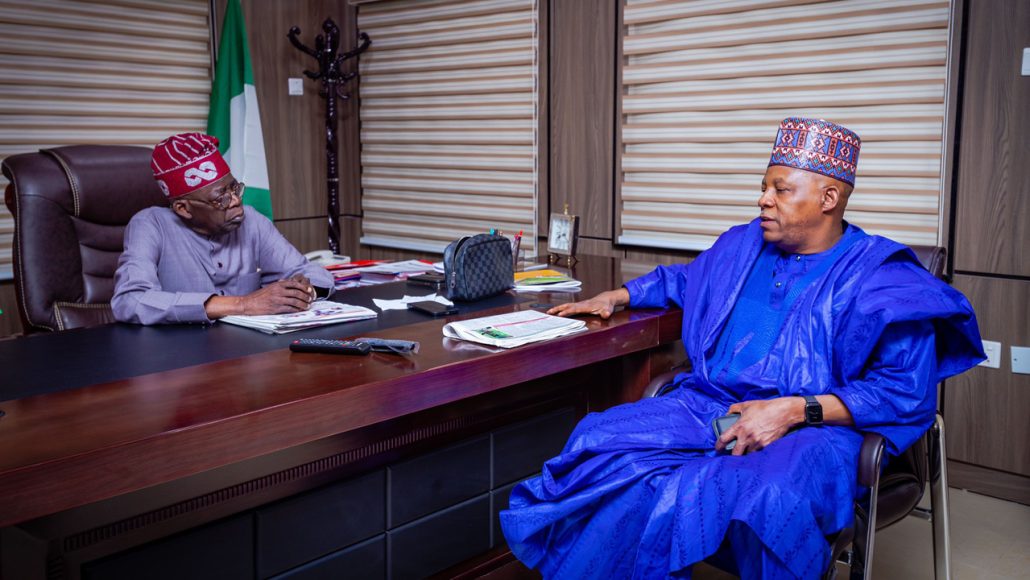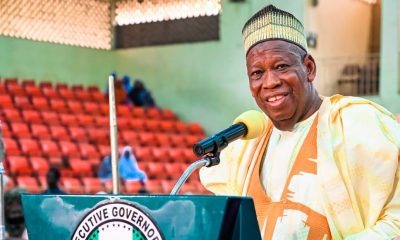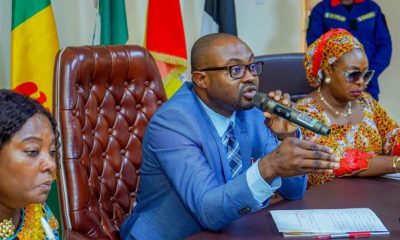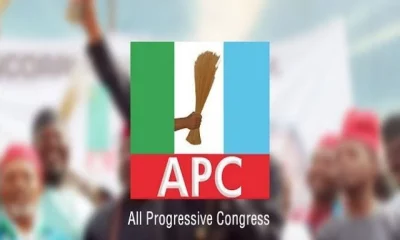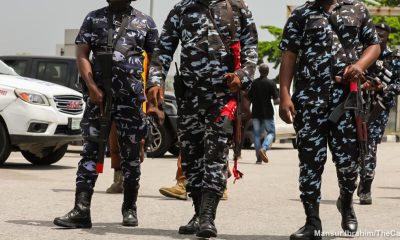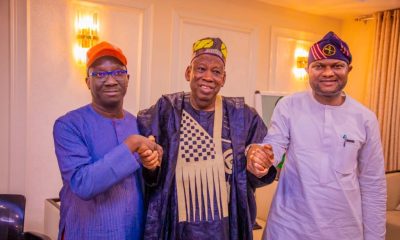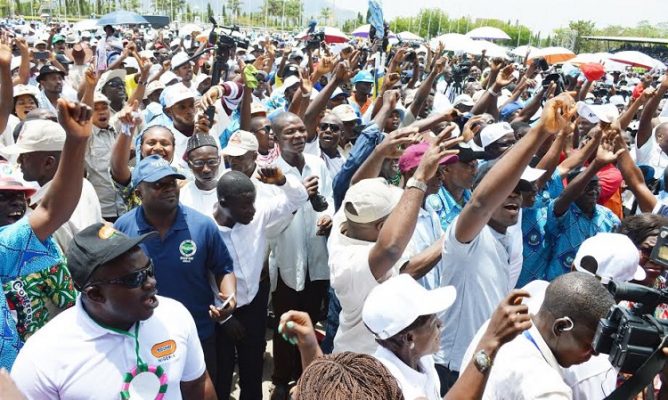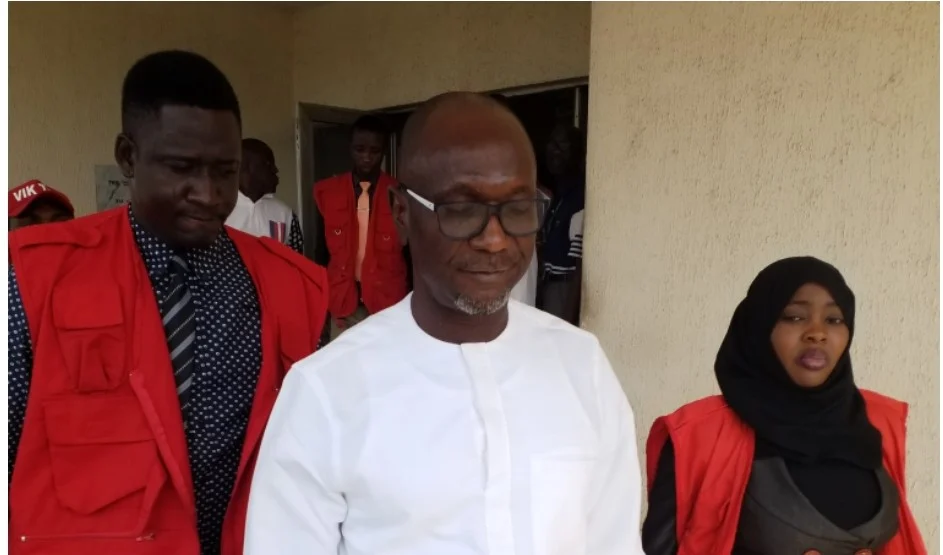In a few hours from now, former governor of Lagos State and the national leader of the All Progressives Congress (APC), Asiwaju Bola Ahmed Tinubu, will be sworn-in as Nigeria’s 16th president. As the man fondly called by his followers as JAGABAN takes over the baton of leadership from President Muhammadu Buhari, several questions are being asked about him.
The questions include: At what point did Tinubu begin his journey to the Presidency? To what extent did his stint at the Senate in 1991/92 and eventual tenure as governor of Lagos State help to shape his political views and perspectives?
Much of what is known about Tinubu and his politics spans his exploits during the short-lived General Ibrahim Babangida transition to civil rule in 1991, the annulment of the 1993 presidential election, which was believed to have been won by Chief Moshood Kashimawo Olawale Abiola.
That Tinubu returned from exile, which was necessitated by his role in the agitation for reclaiming Abiola’s mandate from the military, to become the governor of Lagos State spoke about his staying power on democratic ideals. He was a notable member of the National Democratic Coalition (NADECO), which served as the rallying point for the restoration of democracy after the military junta demolished the remaining civil political structures in the country.
No doubt, his membership of NADECO and efforts to throw up a civilian governor for the state in 1991 coalesced to catapult him to the top row of Alliance for Democracy (AD) in the lead-up to the 1999 governorship race of Lagos State.
As a prime mover of the PRIMROSE Group within the Social Democratic Party (SDP), Tinubu expanded his political capital, not only in Lagos, but also across the federation. SDP, which was one of the two political parties decreed into existence by the Babangida regime, paraded heavyweight progressive politicians, notably the leader of the Peoples Front (PF), General Shehu Musa Yar’Adua.
The other party – the National Republican Convention (NRC), being populated by the contractor class – was seen as part of the military establishment. As such, SDP captured the imagination and appeal of the masses of Nigerians desiring a positive change.
It was therefore a combination of the experience and exposure from the SDP and AD days that established what could be described as the Tinubu political brand. The constant mutation within the AD, which led to the formation of Action Congress (AC), Action Congress of Nigeria (ACN) and cumulated in the merger of otherwise fringe national political parties to form the All Progressives Congress (APC) had the imprint of Tinubu’s political strategy of widening the sphere of progressive influence.
Consequently, on June 8, 2022, when he won the APC presidential primary election to clinch the party’s ticket, the challenge was how to make his rich fund of political goodwill redound to his victory. As an experienced politician, Tinubu discovered that the battle for the 2023 presidency would be fought majorly around media as the turf for campaign messaging.
How did he communicate his ideas to capture voter preference? Simple, he went for experienced hands in the media, said Bayo Onanuga, who served as the Head of the Media Directorate of the Tinubu Presidential Campaign Council.
In an exclusive interview with The Guardian, Onanuga explained that the kernel of the Tinubu campaign was to present him to Nigerians as “a man who has a lot of ideas, who has been governor of Lagos State and who did very wonderfully well in Lagos State.”
Onanuga said of Tinubu: “He is a man of deep knowledge, a man of very great ideas. He has profound ideas about a lot of things. When you talk to him, what people will call the native intelligence, he has it..”
He maintained that the way the president-elect can solve problems, makes people wonder where the man is coming from.
According to Onanuga, some of the innovative solutions that Tinubu brought to the table as the chief executive of Lagos State, include the development of road networks in the expansive Lekki peninsula, reclamation of the lagoon, and the establishment of a development masterplan for the mega city.
Having known the former Lagos State governor for a long time, Onanugua, who also served as publicity secretary when Tinubu contested the governorship in 1999, disclosed: “I think I was asked to lead the Media and Publicity Directorate because Asiwaju wanted me to be there. We’ve come a long way since 1992 or so. So, I knew him and he also knows me very well.
“For me, it was not difficult to sell him as a man who has a lot of ideas, as a man who can help this country to attain our dreams of a prosperous country. That was why I said, his campaign was easy for me. I knew who he was, I knew where he was coming from and I knew he could do a lot to help this country.”
Further, Onanuga described Tinubu as a courageous politician that is not afraid to take risks. For instance, on the issue of deficit budgeting, he said Tinubu has a different idea.
He stated; “There is a book he co-wrote, called Financialism: Water from an Empty Well. Anyone who wants to understand Bola Tinubu, will need to read it to know his worldview. He told them at the Nigerian Economic Summit Group (NESG) early this year that he doesn’t subscribe to the idea that deficit budget is bad. He said it can be good if it is used for productive things. If you are using it to consume then it is a compound negative, he said.”
Tinubu fell back on his peoples-politics to carve a pathway into the North, where he deployed old allies to capture the winning ballots. Another member of the Media and Publicity Directorate and famous broadcast journalist, Danladi Bako, said that the president-elect was able to build a formidable team of committed leaders.
Bako stated: “He located in every state people who could deliver the state. In Jigawa, you had all the big shots, but Alhaji Abubakar Badaru, the governor delivered. In Sokoto, (Senator Maigatakarda) Wamakko delivered. In Niger, 313 (Senator Sani) Musa, delivered, and in Kogi, Governor Yahaya Bello delivered.
“In Benue, George Akume turned the apple-cart, because he was a mentor to (Senator Gabriel) Suswam, and to (Governor Samuel) Ortom, so the godfather influence came to the fore in Benue. The vice presidential candidate was coming from the North East, he tidied up his home, he knew that Borno was done…”
“Considering that North West remained the battleground,” Bako remarked, “Asiwaju was kind enough to draft strong North West people, my humble self inclusive, and I know the work we did in the media, within the youth group, and within the women group.
“As far back as 1973, I was a kid celebrity on the radio as a young boy. So, everybody grew up to know me as their own. So, I was a marketing tool for Asiwaju in the North West, whether it was Kaduna or it was Sokoto.”
He said the Tinubu train dragged along other notable persons to ensure total victory, including, Zamfara State governor, Dr. Bello Matawalle; Governor of Kebbi, Senator Atiku Bagudu.
“All of us worked intensely along with Badaru, and to a large extent, along with (Mallam Nasir) El-Rufai, to make sure that the seven states in the North West were delivered to Asiwaju and the APC. And, the moment you pick up, a sizeable amount of those 22 million votes in the North West, you were home and dry. That was the strategy and of course, we did not leave any stone unturned.”
He noted that the mere indication of the quality of the Presidential Campaign Council, the admixture of reliable, comfortable political heavyeights, Simon Lalong and Abdullahi Adamu in the Middle Belt, 313 (Senator Musa); guaranteed that the Middle Belt was going to deliver.
“At least, five out of six states, and that was what happened,” he added, stressing that it was the same for the Presidential Campaign Council Media Directorate.
“When a man will look out to bring a Senior Advocate of Nigeria (SAN), Festus Keyamu; former mnister, Fani Kayode; former Editor/Publisher of TheNews and Tempo, and former MD of the News Agency of Nigeria (NAN), Bayo Onanuga; then the former Director General (DG) of NBC, 20 years ago, Danladi Bako, in the midst, then he now tops it with Dele Alake, who was Commissioner for Information in Lagos State for eight years, no other party, apart from APC, has that arsenal, that armada of people.
“Then look at the second level, Ali M. Ali, Hanatu Musa, and so many other people. So, in terms of grading, there was a lot that the Media and Publicity could do and did deliver and it showed the difference because you had people who were in other parties just beating around the bush.”
Bako said of Tinubu: “He is humble, he understands how to make compromises. He understands how to wait for his time. He understands what to do when at crossroads. He understands that he cannot win all the time.
“For somebody who was a Senator in 1991 and waited till 1999 to become governor, even after his eight years, he followed up by allowing Nuhu Ribadu to be the presidential candidate of ACN, followed up by allowing Atiku Abubakar to be candidate, followed up by allowing Buhari to be a candidate in 2014. If he was a greedy, over-ambitious person, he would have taken it for himself all this period, but he waited strategically, and made quality northerners the candidate in 2007, 2011, and 2015. He made sure that he allowed them the space, so it was easy for him to come back and say, I have tried my best, for you.
“And if they didn’t win, that wasn’t his fault, but he had allowed and remembered that for a long time, the kind of strategy in politics in Nigeria was a synergy between the North and East, or North and Rivers.”
As Renewed Hope berths, all eyes would be on both the ship and the horizon to see how and whether the pilot, Tinubu and Shettima, could paddle the ship stably through the rough seas of political uncertainty and inclement economic weather to a safe harbour of peace and prosperity.
CULLED FROM THE GUARDIAN

 News3 years ago
News3 years ago
 Entertainment2 years ago
Entertainment2 years ago
 News3 years ago
News3 years ago
 Privacy3 years ago
Privacy3 years ago
 Sports2 years ago
Sports2 years ago
 Entertainment2 years ago
Entertainment2 years ago
 News3 years ago
News3 years ago
 Opinion3 years ago
Opinion3 years ago
